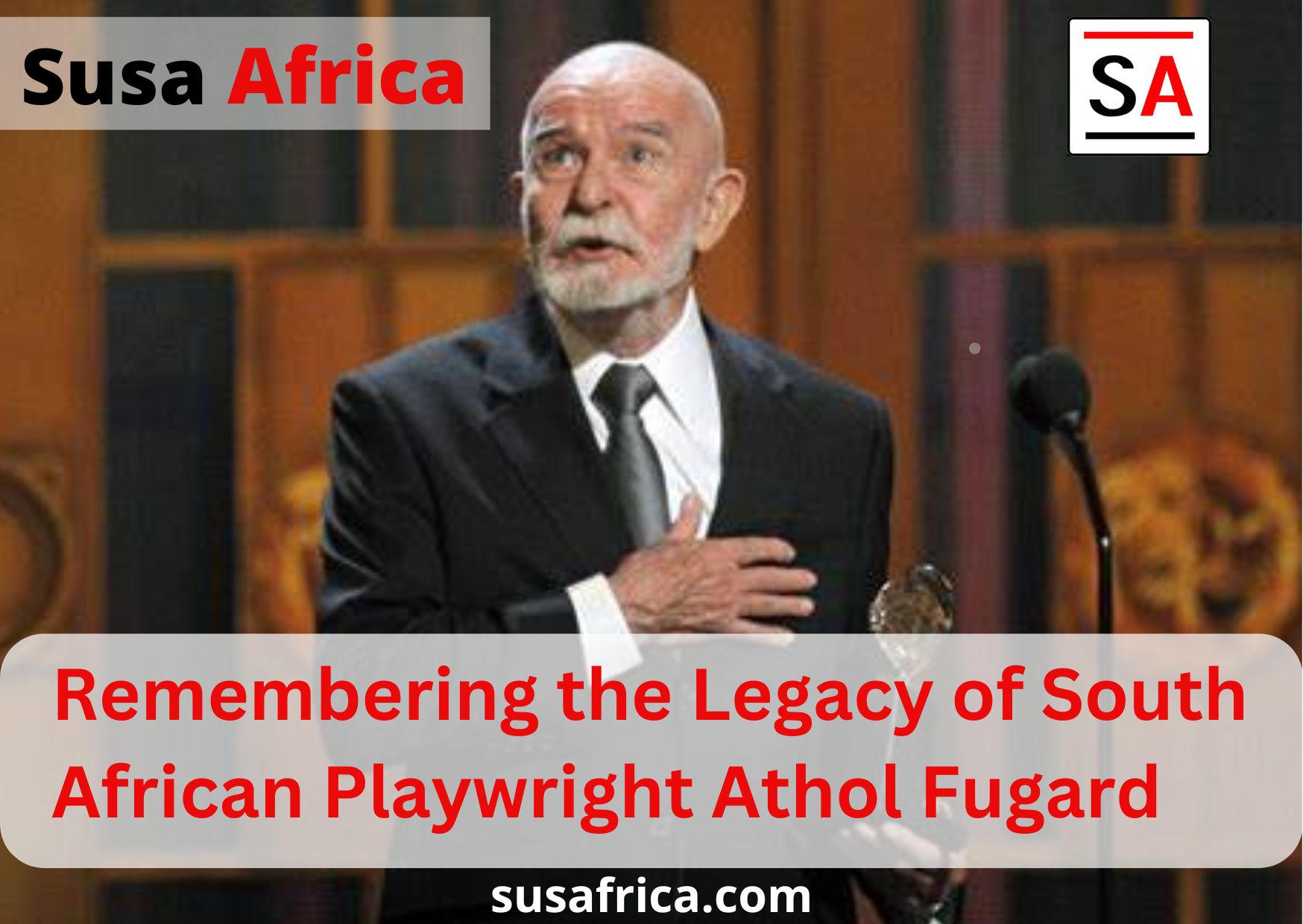Athol Fugard is a South African dramatist, actor, and director who became internationally known for his penetrating and pessimistic analyses of South African society during the apartheid period. Born Harold Athol Lanigan Fugard in the remote village of Middleburg on 11 June 1932, grew up in Port Elizabeth. His father was Afrikaner and his mother English-speaking.
Fugard gained international recognition for his groundbreaking contributions to theater, literature, and film, frequently shining a light on the destructive forces of apartheid and the resilience of ordinary people. He had developed a substantial following there and was a recipient of the Tony award for lifetime achievement. In its citation, the years of government harassment of the family was remembered. They came under surveillance; their mail was opened, their phones tapped, and their home subjected to midnight police searches. His plays were banned, and his passport was withdrawn.
He spent significant time in the United States, where he taught at the University of California, San Diego, and served as Wells Scholar Professor at Indiana University (2000–01). Yet he always remained closely connected to South Africa, returning there after his stint abroad and ensuring that his new works premiered at home.
Read Also: Remembering Dikembe Mutombo (1966-2024)
Fugard is best known for his political and penetrating plays opposing the system of apartheid. Some of these have also been adapted for film. His plays include: Klaas and the Devil (1956), The Cell (1957), No-Good Friday (1959), Nongogo (1959), Blood Knot (1961), Hello and Goodbye (1965), People are Living There (1968), The Last Bus (1969) Boesman and Lena (1969), Friday’s Bread on Monday (1970), Statements After an Arrest Under the Immorality Act (1972), Sizwe Banzi is Dead (1972), The Island (1972), Dimetos (1975), Orestes (1978), A Lesson From Aloes (1978), The Drummer (1980), “Master Harold” …and the Boys (1982), The Road to Mecca (1984), A Place With the Pigs (1987), My Children! My Africa! (1989), My Life (1992), Playland (1993), Valley Song (1996), The Captain’s Tiger (1997), Sorrows and Rejoicings (2001), Exits and Entrances (2004), Booitjie and the Oubaas (2006), Victory (2007), Coming Home (2009), Have You Seen Us (2009), The Train Driver (2010), and The Blue Iris (2012).
He was married for nearly six decades to actress and novelist Sheila Meiring, with whom he had a daughter, Lisa. They divorced in 2015. In 2016, he married academic and playwright Paula Fourie, with whom he had two children, Halle and Lanigan. Fugard was honoured in Cape Town with the opening in 2010 of the Fugard Theatre in District Six. He passed away on 9 March 2025.























Be First to Comment